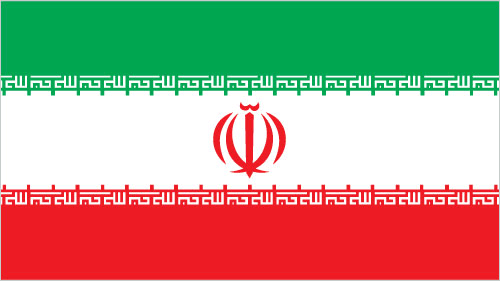
Iran’s Close Relationship with Syria Hinders Negotiations with the US
There appears to be no end in sight for the war in Syria. As ISIS continues its campaign of terror in the region, Russia and Iran increase their military support of the Assad regime, intensifying a conflict that has already affected millions of people. With no formal peace talks in the works, the United States is reaching out to Iran to negotiate a political solution, one in which the Assad regime is removed from power. But the most critical obstacle to this is Iran’s unwillingness to part ways with President Bashar al-Assad.
The beginning of Iran’s relationship with Syria dates back to 1979, when Syria was the first Arab nation to recognize Iran’s nascent government following the shah’s ouster. In 1982, their alliance was formalized after they reached agreements on oil, trade, and military matters. Since then, they have militarily and financially supported each other to ensure their collective survival in the face of common enemies, such as Israel, Saddam Hussein’s Iraq, Saudi Arabia, and Sunni groups. When the Syrian war erupted in 2011, Iran began sending military personnel, weapons, and billions in financial aid to keep its ally in power. After years of war, the Syrian government is now highly dependent on Iran for supplies and money. With Syria struggling to survive, Iran fears that the collapse of Assad’s regime would strengthen the Islamic State (ISIS, ISIL, Daesh) and other Sunni extremist groups. It is now clear as to why Iran is so adamant about keeping Assad’s regime in power. Without it, Iran would lose a vital regional ally, one that has helped to extend Iran’s influence and foreign policy in a hostile Middle East.
The Syrian war is not simply a bilateral conflict. It is the culmination of several competing interests converging upon the chaos of a revolution. On the ground, forces loyal to the Assad regime are battling various secular and Islamist opposition groups. These groups are looking to overthrow Assad, so they can realize their own visions of a new society. ISIS is tangential to the conflict, in that it is against both Assad and the opposition groups, exploiting the chaos to expand its control of Syria and Iraq and legitimize its “caliphate.” To further complicate matters, global powers have entered the fray to exert their military and political power upon the aforementioned actors, with the goal of turning the tide of the war in their favor. The result is a crowded theater of war occupied by Iran, Russia, the US, Saudi Arabia, Syrian regime forces, opposition groups, ISIS, and a slew of others. All of them are fighting for a stake in the uncertain future of a broken country.
There are no good options for the US when it comes to resolving the Syrian war. The two avenues of action on the table are a military option and a diplomatic option. Currently, the US and a coalition of other nations are conducting airstrikes against ISIS, but the measurable success is limited. While the US thus far has avoided deploying ground troops to challenge ISIS and Assad, the alternative of training and equipping “moderate” rebels has failed abysmally. With barely a handful of trained rebels on the ground, the US has no leverage in Syria through which it can negotiate or force Assad’s removal. As a result, the only available non-military option is to negotiate Assad’s political transition with Iran, which itself will be no easy feat.
Iran’s staunch alliance with Syria is obviously a major hindrance to the initiation and success of negotiations with the US. On the other hand, if negotiations arise, the Iranian-Syrian alliance could be useful in influencing Assad to act in the US’ favor. But the recent diplomatic victory of negotiating the Iran nuclear deal does not guarantee success for future negotiations with Iran. In fact, it is unlikely that Iran will even want to initiate negotiations, given that Foreign Minister Javad Zarif “made no effort to encourage the notion that Iran sees an opportunity to join forces with Washington in finding a solution in Syria.” At this point, however, a diplomatic/political solution is the best option if the US wants to avoid a direct military commitment to Syria.





